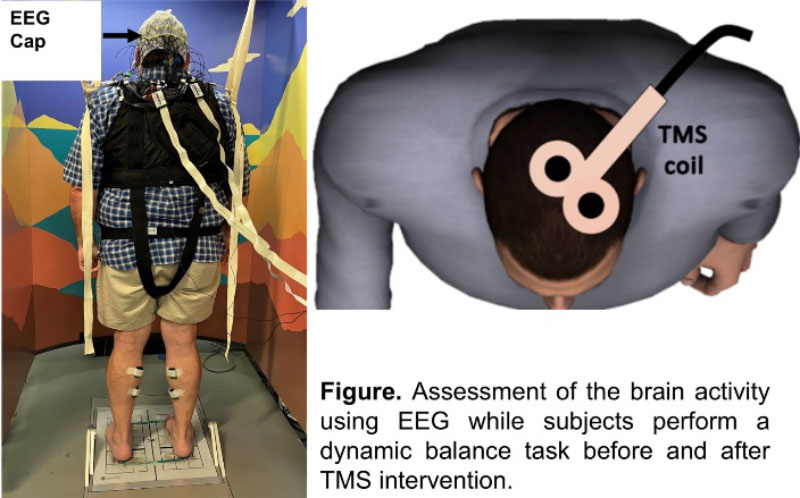Research Experience and Mentoring

Background: Falls and fall-related injuries are a growing public health concern in the elderly. When older adults are affected by neurological conditions, the risk of falling increases substantially. Falls and the resulting fear of falls can mark the beginning of a decline in function, participation in social activities, and independence, thus negatively affecting the quality of life. Loss of balance is one of the common precipitants of falls. Older adults often have alterations in the brain balance circuit that cause ineffective responses to prevent a fall when the balance is challenged. In this project, we will examine the effects of an MRI-guided repetitive transcranial magnetic stimulation (TMS) protocol on the brain balance circuit assessed using electroencephalography and balance behavior in elderly individuals.
Research Plan: Trainees will be paired with graduate student mentors to investigate how the magnetic stimulation of the brain influences the network for balance control within affected/non-affected hemispheres in stroke patients. Trainees will be involved in all aspects of the research including informed consent, data collection & analysis, and dissemination of research findings. Trainee will be exposed to software programming (using MATLAB and/or Python).